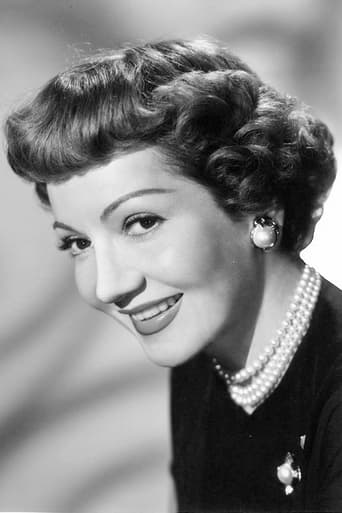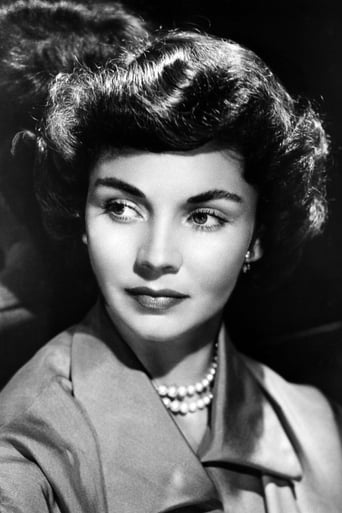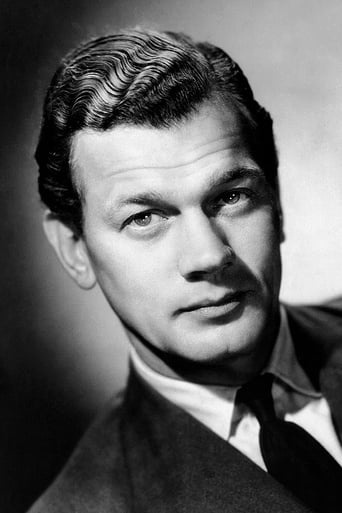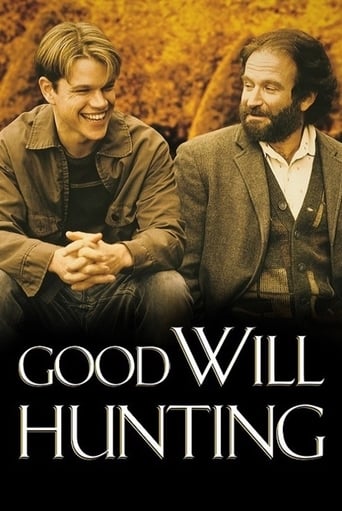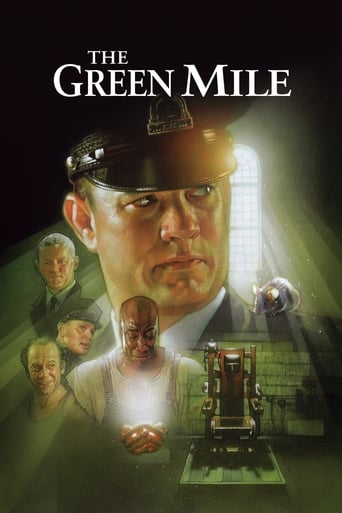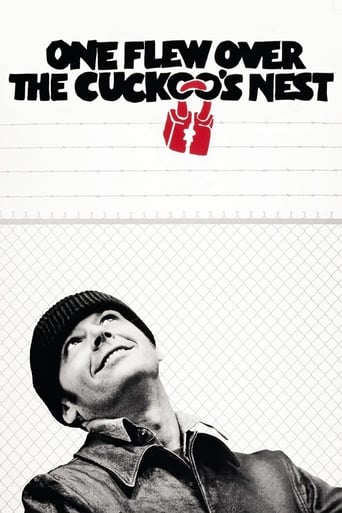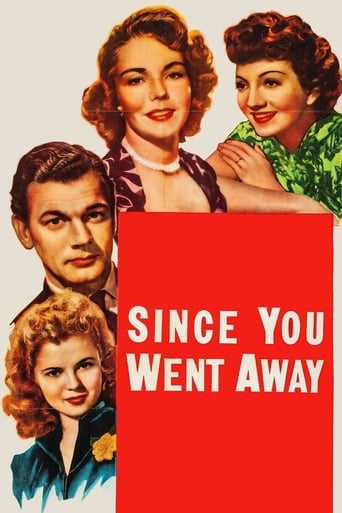
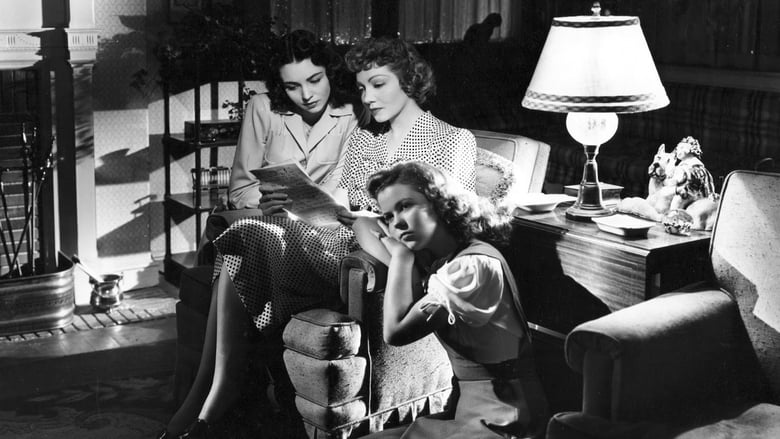
Since You Went Away (1944)
While husband Tim is away during World War II, Anne Hilton copes with problems on the homefront. Taking in a lodger, Colonel Smollett, to help make ends meet and dealing with shortages and rationing are minor inconveniences compared to the love affair daughter Jane and the Colonel's grandson conduct.
Watch Trailer
Cast


Similar titles
Reviews
Copyright 14 September 1944 by Vanguard Films. A Selznick International Picture-Vanguard Films Production. New York release at the Capitol: 20 July 1944. U.S. release (through United Artists): 20 July 1944. U.K. release: 16 April 1945. Sydney release at the Regent: 6 July 1945. Australian release: 12 July 1945. 15,325 feet. 20 reels. 170 minutes.SYNOPSIS: Advertising executive goes off to war, leaving his wife and two teenage daughters to cope on the home front.NOTES: Film was begun by photographer George Barnes who was replaced by Stanley Cortez who was himself replaced by Lee Garmes. Andre De Toth directed several sequences (not that it matters)COMMENT: If ever a film was deliberately designed to defeat the auteur/director-is-supreme theorists, such a film would seem to be Since You Went Away. Three guiding hands are very much in evidence on the picture. None of them belong to director John Cromwell.Hand number one of course is producer David O. Selznick. His first film since Rebecca, produced on a scale to bear comparison with Gone With The Wind. Script by Selznick - and a very soapy, women's picture script it is too, though it has a degree of astringency, almost cynicism, which was probably completely absent from the original Ladies Home Journal story by Margaret Buell Wilder. The plot is so familiar as to be trite, but Selznick not only keeps it moving and dresses it up with a lot of production values (headed by an enormous cast), but he has rounded the characters sufficiently so that even a dull actor like Joseph Gotten can appear almost pliable and interesting. Miss Colbert naturally has a typically weepie role, while Miss Jones grimaces and hogs the camera (in some unflattering close-ups by Lee Garmes) and Mr Walker puts on his nice and shy but oh-so-amiable act. Woolley has a small but typical role which he manages with his usual bite, despite the thinness of his material. Shirley Temple has little to do but stooge for the other members of the cast. Hattie McDaniel over-acts, Agnes Moorehead is a caricature and Albert Basserman is allowed to make a thespic milestone out of his one, unimportant scene. Lionel Barrymore is properly restrained though his role is little more than a walk-on. Nazimova delivers the inscription on the Statue of Liberty (The New Colossus by Emma Lazarus) with taste and skill. The rest of the cast is a movie buffs delight, though Ruth Roman is difficult to spot in her brief walk-on at the railroad station (she has her back to the camera, though turns her head in profile to deliver her line) and Rhonda Fleming is but briefly glimpsed at the dance.The film has two distinct visual styles. Since You Went Away was shot in chronological order, so it is easy to spot where the break occurs. The first 30% of the film is photographed in a forced (and therefore grainy) deep dimensional style. Cortez was forced into this maneuver by the fact that the house set was constructed with no wild walls. Though built in the studio, it was constructed as solidly as a real house. When Garmes took over in the bowling alley sequence (Cortez was called up), he adopted an altogether different style, deciding not to try to light the scenes fully and evenly as had Cortez, but to use natural, low-key effects. He also uses close-ups much more than Cortez. He makes the film much more attractive to look at. Aside from the visual appeal of the more dramatic lighting, he uses the camera more fluidly and fluently.These are the three guiding hands on the film: Selznick who wrote it and supervised every aspect of its production. Cortez and Garmes who gave it two distinct visual styles. All Cromwell seems to have directed is the acting. Despite its great length and its dated, novelettish subject matter, Since You Went Away is more entertaining than a 1987 audience might expect - even without its superlative production values and lustrous Max Steiner score.OTHER VIEWS: Ridiculous as it may seem to-day, this film was actually intended and ballyhooed by Selznick as a contemporary rival to Gone With The Wind - which it most assuredly is not - not in any department - not in script - cast - direction - or production values. True, Selznick more than doubled his money - the film's domestic rentals of nearly $5 million contrast felicitously with its negative cost of $2 million. And it says much for the power of the Selznick name that Since You Went Away was actually nominated for 8 Academy Awards, including Best Picture (lost to Going My Way); Best Actress - Claudette Colbert (lost to Ingrid Bergman in Gaslight); Best Supporting Actor - Money Woolley (lost to Barry Fitzgerald in Going My Way); Best Supporting Actress - Jennifer Jones, would you believe? (lost to Ethel Barrymore in None But the Lonely Heart); Best Photography - another incredible nomination as there is absolutely no dramatic or atmospheric rhyme or reason for the sudden switch from high to low-key lighting a third of the way through (lost to Laura); Best Sets - these too are piddling compared to Gone With The Wind (lost to Gaslight); Best Film Editing - very competent but in no way remarkable as the shots were obviously dictated by the director and cameraman (lost to Wilson); Best Scoring of a Dramatic or Comedy Picture (won!). At least the Academy rank-and-file members had more sense than the governors. Since You Went Away is basically a woman's picture, but even the most indulgent and time-heavy ladies must have found 170 minutes far too elaborate a treatment for such thin material. It far out-stays its welcome, despite the best measures of some of the players and photographer Lee Garmes. - J.H.R. writing as George Addison.
I watched this movie on TCM but I had to buy it because I have come to enjoy the older films more than the contemporary ones. I pulled it out this afternoon and watched it. I love all the actors in this film and the theme of hearth and home. That was the reason the men and women fought that war. It was sentimental and old fashioned but not in a schmaltzy way. Everyone pulled together because they were Americans and did their part for the war effort. It was very interesting to see mother and daughters playing gin rummy for things to do at night and doing hairstyles that were in Vogue. For entertainment, they all played charades at a party instead of watching TV and looking down at cell phones. How refreshing.
A sentimental romantic drama directed by John Cromwell. Its World War II and many soldiers have left loved ones behind to mind the homefront. Annie Hilton(Claudette Colbert)is trying to make the best of it while her husband is away. Times get tough as she struggles to raise her two daughters, Jane(Jennifer Jones)and 'Brig'(Shirley Temple). To fortify her budget, she must take in two borders, an old ex-soldier Col. William Smollett(Monty Woolley)and a dashing Lt. Tony Willet(Joseph Cotten). The extended household pulls together putting a buffer on hardships. Melencholia starts affecting the affairs of the heart as Tony escorts Annie to functions to take her mind off of her husband at war. Jane falls in love with old Col. Willett's disowned grandson(Robert Walker), who has washed out of military school. Lt. Willet gets his orders to ship out and breaks the heart of young 'Brig', who has a teenage crush on him. M-G-M has a genuine heart warming hit on its hands. Miss Colbert is always filmed from her favorite angle while Cotten is smooth as silk. This also marks the first success of Miss Temple past her childhood. The overly talented cast also features: Lionel Barrymore, Hattie McDaniel, Keenan Wynn, Guy Madison and Agnes Moorehead.
I never grow tired of seeing this film and it never fails to bring tears to my eyes. Though not America born, Claudette Colbert is easily embraced in her performance as a wife, mother and patriot of the United States. Of the war movies I have seen Colbert in, So Proudly We Hail and Three Came Home, I love this one most. There is a scene early on in the movie where after she takes her husband to the train depot,she takes refuge in the bedroom she shared with him. It is so authentic and heartrending, a scene which I'm sure was played out in many homes of the wives who were left behind. The character portrayals are all wonderfully done and the Christmas scene at the end is one to rival the classic final scene in Its a Wonderful Life. As is The Best Years of Our Lives, Since You Went Away is also a must-see WWII film about the effects of war on the families of our soldiers.


